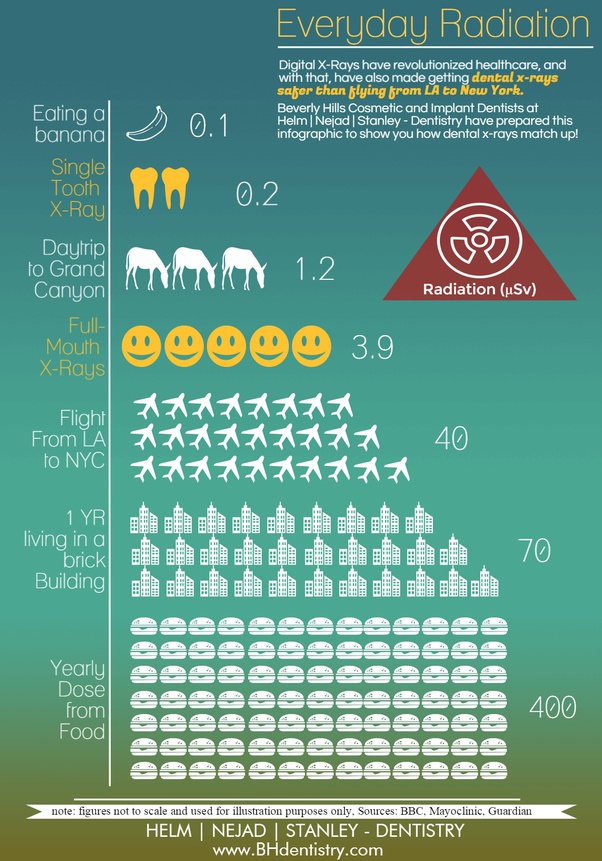Dental X-rays, or radiographs, help us visualize diseases of the teeth and surrounding tissue that cannot be seen with a simple oral exam. In addition, X-rays help us find and treat dental problems early in their development, which can potentially save you money and unnecessary discomfort.
In adults, dental X-rays can be used to:
- Show areas of decay that may not be visible with an oral exam, especially small areas of decay between teeth
- Identify decay occurring beneath an existing filling
- Reveal bone loss that accompanies gum disease
- Reveal changes in the bone or in the root canal resulting from infection
- Assist in the preparation of tooth implants, braces, dentures, or other dental procedures
- Reveal an abscess (an infection at the root of a tooth or between the gum and a tooth)
In children, dental X-rays can be used to:
- Watch for decay
- Determine if there is enough space in the mouth to fit all incoming teeth
- Determine if primary teeth are being lost quickly enough to allow permanent teeth to come in properly
- Check for the development of wisdom teeth and identify if the teeth are impacted (unable to emerge through the gums)
- Reveal other developmental abnormalities, such as cysts and some types of tumors
Worried about radiation from X-rays? X-rays have changed over time and the radiation you receive from an X-ray is nominal. Below is a chart comparing X-rays to radiation you get in your every day life:
